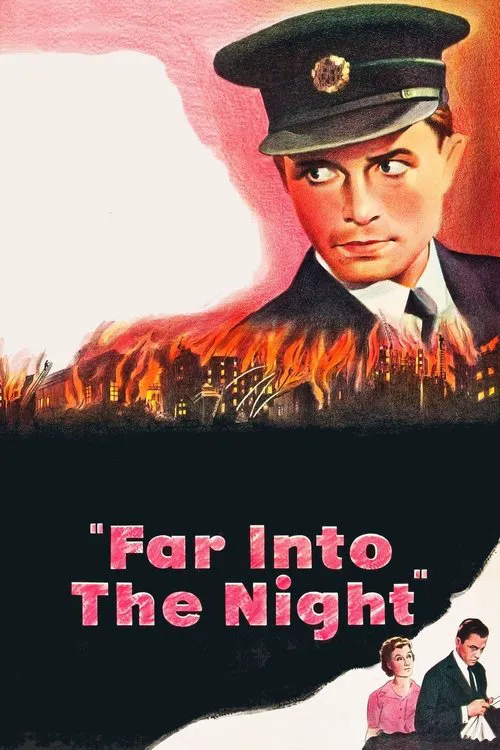The Bells Go Down

あらすじ
The Bells Go Down, a 1943 British film, tells an inspiring story of resilience and devotion set against the backdrop of the London Blitz during World War II. Directed by Basil Dearden, the movie serves as a tribute to the brave men who made up the Auxiliary Fire Service (AFS), an essential force in keeping the city's devastating fires from spreading. The story begins on a fateful evening in September 1940, during "The September Blitz," a prolonged German bombing campaign that left the city in ruins. As the AFS rushes to respond to the chaos, we are introduced to Tommy Williams, a young recruit from the working-class East End played by a more subdued and serious Tommy Trinder. Unlike his usual comedic roles, Trinder gives a memorable turn as a dedicated member of the AFS, showcasing his range as an actor. As the war intensifies, the city struggles to cope with the relentless barrage of bombs raining down from the skies. Amidst the destruction, the AFS emerges as a beacon of hope, fighting tirelessly to contain the fires that threaten to engulf London. Their bravery and selflessness serve as an inspiration to the public, providing a much-needed morale boost during those dark times. Through Tommy's journey, the film delves into the lives of the AFS personnel, exploring their personal struggles and camaraderie. As the story unfolds, Tommy forms close bonds with his fellow firefighters, including Sergeant Thompson, a seasoned veteran with a no-nonsense attitude, and young Jack, a cocky and eager new recruit. These relationships not only provide a humanizing dimension to the narrative but also highlight the AFS's importance as a tight-knit community. The movie showcases the harrowing realities of firefighting during war, highlighting the incredible bravery and skill required to fight fires in hazardous environments. As the AFS battled to contain blazes in crumbling buildings and narrow streets, they often put themselves in harm's way, risking life and limb to protect the people and property. Their selflessness is evident in their unwavering dedication, a testament to the strength and resilience of the British people during their darkest hour. At the heart of the story lies a personal tragedy that serves as a poignant reminder of the devastating human cost of war. A devastating fire consumes a residential block, claiming the lives of a young family. As the AFS fights to bring the blaze under control, the scene shifts to a poignant moment where Tommy witnesses the aftermath, leaving an indelible mark on his psyche. Through this pivotal moment, the film highlights the psychological toll of witnessing such traumatic events. In the midst of chaos, the AFS personnel find comfort and solace in their camaraderie, knowing that they have each other's backs, even as they face unimaginable danger. This shared understanding becomes the bedrock of their bond, a testament to the unbreakable spirit of the AFS. As the war slowly recedes, The Bells Go Down provides an uplifting conclusion, emphasizing the importance of the AFS in the British people's collective victory. Despite the odds, the AFS stood tall, fighting tirelessly against overwhelming adversity. In doing so, they gave hope to a nation, a shining example of the values that would help carry the people through one of the most trying periods in their history. In the film's final scenes, as the city begins to rebuild and recover, the AFS remains steadfast, a symbol of British resolve and determination. The bells that go down in the movie title refer not only to the physical toll of the war but also the spirit of the people who refused to give in, even as the enemy rained down destruction on their doorstep. The Bells Go Down serves as an authentic tribute to the men who made up the AFS, an enduring tribute to their bravery, selflessness, and unbreakable spirit.
レビュー
おすすめ



